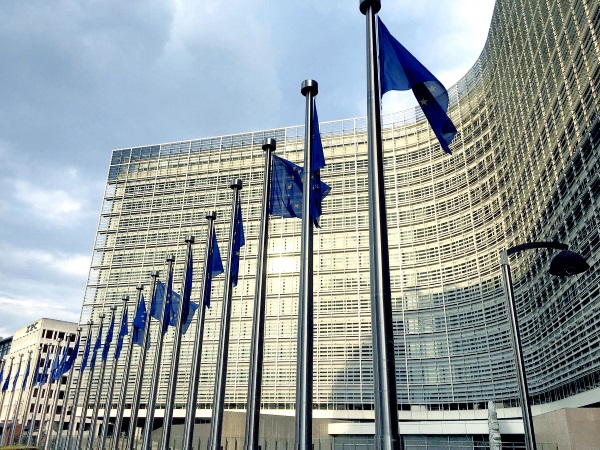|
|
 |
Die Mär vom egoistischen Ökonomen – Wie Ökonomen auf Anreize reagieren
Dmitri Bershadskyy Menschen, die über ökonomische Bildung verfügen, reagieren stärker auf wirtschaftliche Anreize. Entgegen der verbreiteten Annahme handeln Ökonomen jedoch nicht egoistischer als Nicht-Ökonomen, wenn es darum geht, gemeinsam ein öffentliches Gut zu finanzieren. [...] weiterlesen |
| Magazin im PDF-Format lesen |
 |
Heft-Archiv durchsuchen |
 |
|
 |
|
 |
|
Reint E. Gropp
Kommentar: Bitcoin?
Selbst nach dem Preisverfall zu Beginn dieses Jahres hätte eine Investition in Bitcoin über die letzten Jahre hinweg betrachtet phantastische Erträge erzielt. Sollte man seine Ersparnisse jetzt also in Bitcoin anlegen? ...<< |
|
 |
|
Eva Dettmann
Aktuelle Trends: Nach wie vor große Branchenunterschiede bei der Weiterbildung
Seit dem Ende der Finanzkrise steigt der Anteil der Beschäftigten, deren Weiterbildung vom Betrieb unterstützt wird, wieder kontinuierlich an. Der aktuelle Wert liegt bei ca. einem Drittel der Beschäftigten in Gesamtdeutschland. ...<< |
|
 |
|
Michael Koetter, Thomas Krause, Lena Tonzer
Welche Faktoren verzögern die Umsetzung der Bankenunion?
Die Europäische Kommission hat weitreichende Reformen zur Regulierung und Überwachung des europäischen Bankensektors beschlossen, um die Stabilität europäischer Banken zu gewährleisten. ....<< |
|
 |
|
|
 |
|
|
 |
|
|
UPCOMING: Donnerstag, 21. Juni 2018 bis Freitag, 22. Juni 2018, Halle (Saale)
The 14th CompNet Annual Conference: Economic Growth, Trade and Productivity Dispersion The CompNet conference discusses questions related to firm productivity, competition on output and input markets, internal and external factors hampering the reallocation of factors of production and the diffusion and adoption of new knowledge and technologies as well as the implication of such barriers for welfare and economic growth policies and the role of globalization, trade and new technologies. |
|
|
Dienstag, 12. Dezember und Mittwoch, 13. Dezember 2017, Halle (Saale)
18th IWH-CIREQ-GW Macroeconometric Workshop: „Mixed Frequency Data in Macroeconomics and Finance”
The 18th IWH-CIREQ-GW Macroeconometric Workshop took place on December 12th and 13th 2017 at the Halle Institute for Economic Research (IWH) – Member of the Leibniz Association. The workshop was about „Mixed Frequency Data in Macroeconomics and Finance“. Researchers from around the globe presented cutting edge research regarding methods to combine data published at different periodicity. Keynotes were given by John Rogers, Ph.D., senior adviser at the Federal Reserve, and Professor Massimiliano Marcellino, Bocconi University.
|
|
Mittwoch, 21. Februar 2018, Halle (Saale)
Von der Transformation zur europäischen Integration: Optimieren durch Evaluieren – Wirtschaftsförderung im Qualitätscheck
Im Rahmen der jährlichen Transfertagung des IWH beleuchteten Wissenschaftlerinnen und Wissenschaftler aus mit dem IWH vernetzten Instituten und Universitäten verschiedene Bereiche der Wirtschaftsförderung. PD Dr. Mirko Titze, Leiter des Zentrums für evidenzbasierte Politikberatung, sprach bei der anschließenden Podiumsdiskussion mit Gästen über „Evaluation von Wirtschaftsförderung – zwischen Ideal und Wirklichkeit“.
|
|
| Alle IWH-Veranstaltungen |
 |
|
|
 |
|

|
|
Journal of Banking & Finance
Regional Banking Instability and FOMC Voting
Stefan Eichler, Tom Lähner, Felix Noth
>> This study analyzes if regionally affiliated Federal Open Market Committee (FOMC) members take their districts’ regional banking sector instability into account when they vote. Considering the period 1979–2010, we find that a deterioration in a district's bank health increases the probability that this district's representative in the FOMC votes to ease interest rates. ...<< |
|

|
|
Journal of Financial Economics
When Arm’s Length Is Too Far. Relationship Banking over the Credit Cycle
Boris Hirsch, Daniel S. J. Lechmann, Claus Schnabel
>> We conduct face-to-face interviews with bank CEOs to classify 397 banks across 21 countries as either relationship or transaction lenders. We then use the geographic coordinates of these banks’ branches and of 14,100 businesses to analyze how the lending techniques of banks in the vicinity of firms are related to credit constraints at two contrasting points of the credit cycle. ...<< |
|

|
|
in: Heinemann, Klüh, Watzka (eds): Monetary Policy, Financial Crises, and the Macroeconomy
German Unification: Macroeconomic Consequences for the Country
Axel Lindner
>> This paper shows basic macroeconomic consequences of the German unification for the country in time series spanning from 20 years before the event until 25 years thereafter. Essential findings can well be explained by elementary economic theory. Moreover, it is shown that the German economy had been off steady state already before unification in important aspects. ...<< |
|
| Alle IWH-Veröffentlichungen |
 |
|
|
 |
|
IWH-Diskussionspapiere Nr. 21/2017
Chris Becker, Matias Ossandon Busch, Lena Tonzer: Macroprudential Policy and Intra-group Dynamics: The Effects of Reserve Requirements in Brazil |
|
IWH-Diskussionspapiere Nr. 22/2017
Stefan Eichler, Helge Littke: Central Bank Transparency and the Volatility of Exchange Rates |
|
IWH-Diskussionspapiere Nr. 23/2017
Steffen Müller, Jens Stegmaier: Why is there Resistance to Works Councils in Germany? An Economic Perspective |
|
IWH-Diskussionspapiere Nr. 24/2017
Michael Koetter, Thomas Krause, Lena Tonzer: Delay Determinants of European Banking Union Implementation |
|
IWH-Diskussionspapiere Nr. 25/2017
Felix Noth, Oliver Rehbein: Badly Hurt? Natural Disasters and Direct Firm Effects |
|
IWH-Diskussionspapiere Nr. 26/2017
Matthias Heinz, Sabrina Jeworrek, Vanessa Mertins, Heiner Schumacher, Matthias Sutter: Measuring Indirect Effects of Unfair Employer Behavior on Worker Productivity – A Field Experiment |
|
IWH-Diskussionspapiere Nr. 27/2017
Eva Dettmann, Mirko Titze, Antje Weyh: Who Benefits from GRW? Heterogeneous Employment Effects of Investment Subsidies in Saxony Anhalt |
|
IWH-Diskussionspapiere Nr. 28/2017
Oliver Holtemöller, Felix Pohle: Employment Effects of Introducing a Minimum Wage: The Case of Germany |
|
IWH-Diskussionspapiere Nr. 29/2017
Martin Altemeyer-Bartscher, Dmitri Bershadskyy, Philipp Schreck, Florian Timme: Endogenous Institution Formation in Public Good Games: The Effect of Economic Education |
|
IWH-Diskussionspapiere Nr. 30/2017
Sandra Dreher, Sebastian Eichfelder, Felix Noth: Predicting Earnings and Cash Flows: The Information Content of Losses and Tax Loss Carryforwards |
|
IWH-Diskussionspapiere Nr. 31/2017
Hans-Ulrich Brautzsch, Birgit Schultz: The Minimum Wage Effects on Skilled Crafts Sector in Saxony-Anhalt |
|
IWH-Diskussionspapiere Nr. 32/2017
Daniel Fackler, Steffen Müller, Jens Stegmaier: Explaining Wage Losses after Job Displacement: Employer Size and Lost Firm Rents |
|
IWH-Diskussionspapiere Nr. 33/2017
Matthias Wieschemeyer, Bernd Süssmuth: Progressive Tax-like Effects of Inflation: Fact or Myth? The U.S. Post-war Experience |
|
IWH-Diskussionspapiere Nr. 34/2017
Andrej Drygalla, Oliver Holtemöller, Konstantin Kiesel: The Effects of Fiscal Policy in an Estimated DSGE Model – The Case of the German Stimulus Packages During the Great Recession |
|
IWH-Diskussionspapiere Nr. 1/2018
Sabrina Jeworrek, Vanessa Mertins, Michael Vlassopoulos: “The Good News about Bad News”: Feedback about Past Organisational Failure and its Impact on Worker Productivity |
|
IWH-Diskussionspapiere Nr. 2/2018
Boris Hirsch, Steffen Müller: Firm Wage Premia, Industrial Relations, and Rent Sharing in Germany |
|
IWH-Diskussionspapiere Nr. 3/2018
Oliver Holtemöller, Jan-Christopher Scherer: Sovereign Stress, Banking Stress, and the Monetary Transmission Mechanism in the Euro Area |
|
IWH-Diskussionspapiere Nr. 4/2018
Oliver Rehbein: Flooded Through the Back Door: Firm-level Effects of Banks‘ Lending Shifts |
|
|
Alle IWH-Diskussionspapiere |
 |
|
|
 |
|
IWH-Pressemitteilung 41/2017
Arbeitsleistung: Osten und Westen gleichauf
>> 75% der erwerbsfähigen Personen in Ostdeutschland hatten 2016 dort auch einen Arbeitsplatz. In Westdeutschland waren es 81% – also sechs Prozentpunkte mehr. Hans-Ulrich Brautzsch vom Leibniz-Institut für Wirtschaftsforschung Halle (IWH) zeigt aber jetzt: Wenn Pendlerströme und Arbeitszeiten eingerechnet werden, liegen Osten und Westen bei der Arbeitsleistung gleichauf – und das Gefälle entsteht erstaunlicherweise zwischen Nord- und Süddeutschland. ...<< |
|
IWH-Pressemitteilung 42/2017
Polen am Scheideweg
>> Polen hat bislang einen recht erfolgreichen wirtschaftlichen Aufholprozess durchlaufen, der nun ins Stocken gerät. Der so genannte „Morawiecki-Plan“, den Oliver Holtemöller und Martina Kämpfe vom Leibniz-Institut für Wirtschaftsforschung Halle (IWH) nun genauer unter die Lupe nahmen, soll dem Aufholprozess wieder mehr Schwung verleihen. Ihr Fazit: Um nicht in der „Middle-Income-Trap“ zu landen, muss Polen innovative und junge Unternehmen stärker fördern und den Bildungssektor weiter ausbauen. ...<< |
|
IWH-Pressemitteilung 2/2018
Fernsehen aktiviert Unternehmergeist
>> Unternehmensgründungen schaffen Arbeitsplätze und treiben die Entwicklung einer Marktwirtschaft voran. Über welche Kanäle der Unternehmergeist in den Menschen aber überhaupt geweckt wird, damit beschäftigten sich Viktor Slavtchev, Ökonom am Leibniz-Institut für Wirtschaftsforschung Halle (IWH), und sein Co-Autor Michael Wyrwich in einer Studie. Ihr Ergebnis: Auch das Fernsehen kann die dafür passenden Werte vermitteln. Für ihre Analyse verglichen die Ökonomen die Unternehmensaktivität in ostdeutschen Regionen, die West-Fernsehen empfangen konnten, mit solchen, die diese Möglichkeit nicht hatten. ...<< |
|
|
Alle IWH-Pressemitteilungen |
 |
|
|
 |
|
|
|
|
Impressum
Leibniz-Institut für Wirtschaftsforschung Halle (IWH)
Kleine Märkerstraße 8
D-06108 Halle (Saale)
Tel +49 345 7753 60
www.iwh-halle.de
| Vorstand: |
Vertretungsberechtigter Vorstand: Professor Reint E. Gropp, Ph.D.,
Professor Dr. Oliver Holtemöller, Dr. Tankred Schuhmann, Anschrift wie oben
|
| Registergericht: |
Vereinsregister Stendal, Vereinsregisternummer 21103
|
|
|
|
|